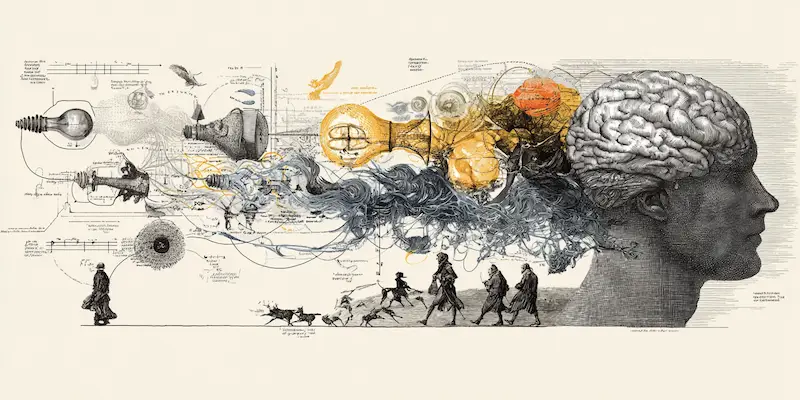As supervision continues to evolve in both scope and complexity, so too must the frameworks that underpin its practice. This year, EMCC Global released a significantly updated version of its Supervision Competence Framework (June 2025), replacing the previous iteration that many of us at ICCS have been working with for years.
But what exactly has changed—and what does it mean for supervisors, trainers, and the profession as a whole?
Here, we take a closer look at the core developments and how they contrast from with the earlier set of competencies.
From Competence to Capability: A Shift in Language and Philosophy
Where the previous framework focused on competencies—observable behaviours aligned to supervision’s core functions—the new version adopts a language of capability. This reflects a deeper understanding that supervision is not merely a checklist of actions but a relational, systemic, and emergent practice.
The framework invites dialogue and reflection rather than prescriptive assessment.
(EMCC, 2025)
This aligns beautifully with ICCS’s own pedagogical stance, which prizes developmental depth over surface-level performance. The ADCS has long used a simplified green/red flag model to honour this nuance in assessment, recognising the spirit and function of supervision rather than rigid behaviours.
Integration of Systemic and Technological Insight
One of the most notable updates is the explicit integration of systemic complexity and emerging technologies, including artificial intelligence. The 2025 framework encourages supervisors to consider not only the coach and their clients but also multi-stakeholder environments, group dynamics, and digital contexts.
This expands upon earlier models which were more rooted in individual supervision. The new model also expects supervisors to reflect on their use of technology—how AI is leveraged (or not), and its ethical implications.
For ICCS-trained supervisors, this is an exciting alignment. Our curriculum already introduces systemic thinking via the 7-Eyed Model, and this update affirms our ongoing innovation around supervision in digital-first, hybrid, and organisational settings.
A More Nuanced Approach to Ethics and Diversity
While ethics has always been central to supervision, the 2025 framework broadens this to a more mature, reflective territory. It’s no longer enough to “adhere to a code”; supervisors must now cultivate ethical maturity—engaging with dilemmas, paradoxes, and cultural complexity in real time.
This includes:
-
Exploring one’s own biases and positionality in supervision
-
Supporting supervisees to work with power, identity, and inclusion
-
Reflecting on the systemic impacts of choices made in the supervision room
This builds on the ICCS emphasis on ethics as a lived, contextual process, rather than a static guideline. From sessions on Navigating Difference to the use of Heron’s authoritative vs facilitative interventions, these themes are woven throughout the ADCS.
Expanded Functions and Roles of the Supervisor
The new framework also acknowledges the evolving identity and role of the supervisor. Beyond the well-known formative, normative, and restorative functions, it now positions supervision as a co-created, multi-stakeholder collaboration. This resonates with our vision at ICCS—that supervisors are not gatekeepers, but facilitators of learning, insight, and systemic care.
It also deepens the supervisor’s responsibility to hold relational complexity, including:
- Parallel process
- Emotional field awareness
- Cultural dynamics
- Organisational overlays
These are exactly the areas we help our supervisors-in-training explore through fishbowl supervision, reflective writing, and supervision-of-supervision.
So, What Does This Mean for You?
If you’re an ADCS graduate, you’ll be pleased to know that you’re already well prepared for this evolution. The new EMCC framework simply names and codifies many of the areas we’ve always treated as essential.
But it’s also a moment for us all to refresh, revisit, and deepen.
Some invitations for current supervisors:
-
Revisit your practice through a capability lens—where are you growing, stretching, or even contracting?
-
Reflect on your use of technology in supervision—are you intentionally engaging with its benefits and risks?
-
Explore your systemic awareness—what voices, identities or dynamics are you not yet seeing?
For current and future students, this shift only strengthens the relevance and rigour of the ADCS programme. It ensures that you’re training not just for supervision as it was, but for supervision as it’s becoming.
Final Thoughts
The 2025 EMCC Supervision Competence Framework signals a more inclusive, systemic, and forward-facing era for our field. It challenges us to evolve not just our skills, but our ways of seeing and being as supervisors.
At ICCS, we welcome this evolution. Because supervision, like the coaches it serves, must never stop learning.


 Learn About our Coaching Supervision Training
Learn About our Coaching Supervision Training The Complete Guide to Becoming a Coaching Supervisor
The Complete Guide to Becoming a Coaching Supervisor Picturing Coach Supervision: An illustrated Guide
Picturing Coach Supervision: An illustrated Guide Course details and dates for our Accredited Diploma in Coaching Supervision
Course details and dates for our Accredited Diploma in Coaching Supervision A self-assessment to gauge your readiness
A self-assessment to gauge your readiness A course assessment checklist for reviewing any supervision course
A course assessment checklist for reviewing any supervision course


